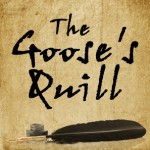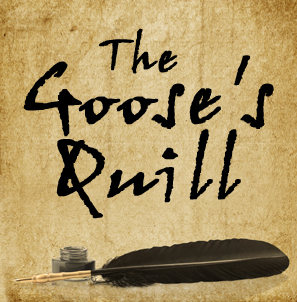It’s possible to quit virtually anything in life. You can quit a job, quit school, quit smoking, quit drinking. You can even quit a marriage or being a parent. Some things are harder to quit than others. Some things are more socially acceptable to quit than others. Usually, ending a bad habit is good. Walking out on your kids, not so much.
My daughter wants to quit swim class. Because of pool repairs, it’s at a different facility, and she hates it there. The water is colder, the edge of the pool is harder to hold on to, and the locker rooms are chilly. She wants to stop until the pool is fixed. I told her no.
Why? Because sometimes necessary things in life are hard or unpleasant, but still need to be done. Because swimming is a survival skill she needs to learn. Because it is, after all, only 3 more weeks. She needs to stick to it, because she is still not a strong swimmer, still uses a floatation device sometimes. So we will finish this session and sign up for the next.
Then I started wondering, what if she had said she wanted to quit dance instead of swim? Truthfully, I would have told her she had to finish out the session—because she made a commitment and should honor it—but that if she didn’t want to sign up for another session, that was fine.
Then I wondered why the difference in my thinking. I am a creative myself, so you’d think I’d push her hard to stick with dancing, right?
I think several things led to my different conclusions. First, our culture does not value creative arts, and even though I am a creative, I have been influenced by our culture. It is so easy to quit a creative endeavor. In fact, we creatives are often encouraged to quit. To sideline our passion as a hobby. To do something more…worthwhile with our time.
Second, as a creative, I know that the worst thing I can do when the passion is gone is push too hard to get it back. If my daughter wanted to give up dance, I would let her because if she has lost the joy of it, why continue? Creative pursuits need to be followed because we want them and can’t do without them. Very few of us will see monetary gains from these pursuits, so if we find no joy in them, no inspiration, no fulfillment, then what’s the point?
Third, sometimes walking away from a creative art is exactly what you need to find out how much it means to you. We all get burnt out. Sometimes a break is exactly what we need to find the passion again. And if you find you can walk away and never look back, that art was never your true calling to start with.
Despite our cultural stigma that “nobody likes a quitter,” I think it’s more important to examine what you are quitting and why. After all, I’ve quit every job I’ve ever had in order to end up as a write-from-home mom. The key is knowing when quitting is a smart move vs. a lazy move.
So ignore cultural pressures if you can. Dreams are hard to come by. Hold on tight—but if you must quit, quit smart.
What do you think about quitting a creative endeavor? When is it wise to quit, if ever?









The Truth About Your Productivy
Memory is a funny thing. If you had asked me, I would have told you that in my daughter’s first two years, I didn’t write anything new—that all I did was edit works that I had completed before she was born.
I looked back through Facebook statuses from those two years, and I found a very different productivity story.
I was, in fact, amazingly prolific in the first two years of my daughter’s life. I took three extended workshops: Revise & Sell (also called Advanced Novel), Act Like A Writer, and the YA Novel In Nine Months. I revised a middle grade novel. And I wrote the first draft of a new novel. I found posts detailing word counts of between 1,000 and 2,000 words. Not to mention I wrote several blog posts a week and was a member of a critique group.
I wrote quite a lot!
Of course, the anxiety-ridden part of me suddenly thought: What happened? I’m not possibly that prolific now. So I stepped back and looked. I write two blog posts a week–one here, one for the Author Chronicles–usually totaling about 1,500 words. In the last 12 months, I have completed the first draft of a new work, as well as done two rounds of edits for my book that comes out this year. I have also done networking and social media work and I continue to attend the Writer’s Coffeehouse every month—and the occasional writing workshop. I’m now editing the first draft I completed earlier this year, and finished editing a short story that I hope to submit next month.
So I am still writing quite a bit! Of course, now my child no longer naps—back when my daughter was an infant, she slept for close to 5 hours a day. Now she is in school for only 2 hours a day, so I actually have less time to work than I did back then.
What’s the takeaway? I want to tell every writer out there that if you are putting in the effort, you are probably much more productive than you think. You feel like you’re not getting anywhere but I bet if you stepped back and looked, you would be surprised.
I sure was.
Are you ever surprised by your productivity?